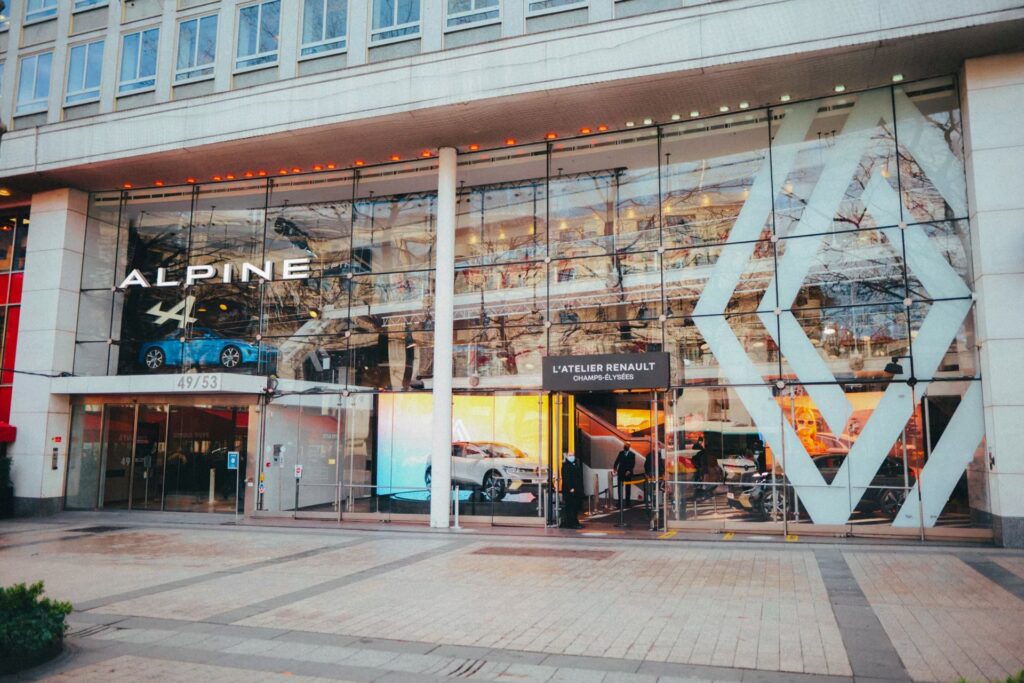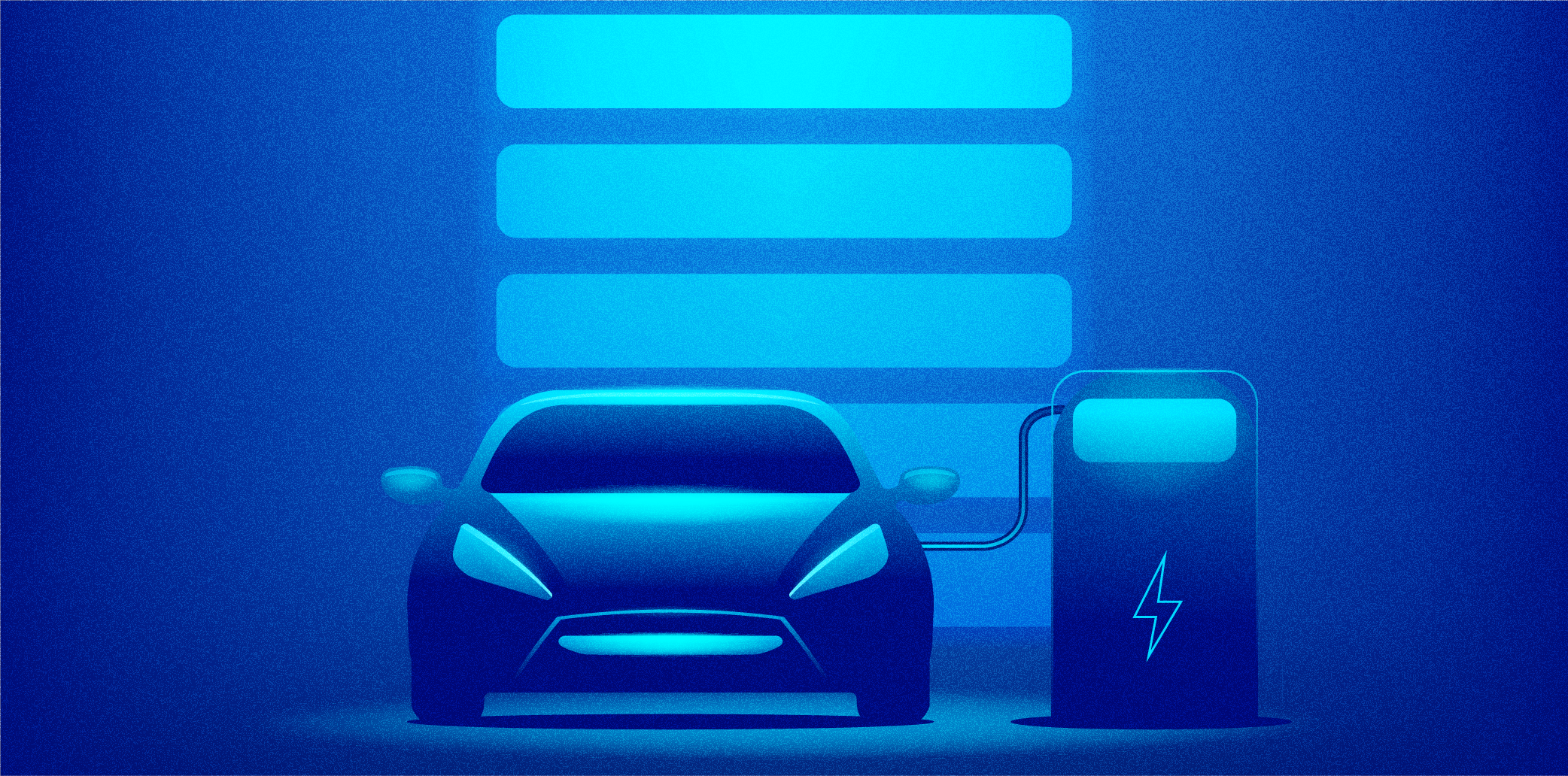Since Tesla ushered in the era of electric vehicles, the global automotive industry has been accelerating its transition to new energy.
In the European automotive market, Renault, a French car manufacturer, has also exhibited promising momentum in electrification, achieving a global total sales volume exceeding 2.235 million units in 2023.
In Europe, Renault sold 270,362 EV units, marking a year-on-year growth of 19.7%. Its hybrid vehicle sales totaled 185,666 units, growing 62% year-on-year. This progress can be attributed to Renault’s corporate transformation strategy initiated in 2021, which focuses on five major areas: the all-electric vehicle brand Ampere, the sports car brand Alpine, financial services, the circular economy, and the fuel and hybrid vehicle business. Among these, Ampere aims to produce approximately 1 million EVs for Renault by 2031.
In March 2024, senior executives of Renault communicated with media outlets such as 36Kr, stating that Tesla and Chinese newcomers have redefined the automotive industry in terms of vehicle electrification and intelligence, serving as a wake-up call for Renault.
The goal of Ampere is to complete vehicle R&D within two years, similar to Chinese automotive companies, whereas in Europe, this process typically takes four years.
During a visit to Renault’s EV showroom on the Champs-Elysees in Paris, 36Kr observed Renault’s two compact pure electric SUVs: the Megane E-Tech and Scenic E-Tech. These EVs are integrated with an in-car system comprising smart features and apps. Local customers at the store were noted saying that “Renault doesn’t seem like Renault anymore—it’s become younger.”

Furthermore, Renault’s latest B-class EV, the Renault 5 E-Tech, is scheduled to begin production in 2025. Leveraging several models, Renault’s electrification strategy prioritizes securing the European market.
However, Renault faces formidable competitors in its homeland of France, including Tesla and SAIC Motor’s MG brand. In 2023, Tesla sold 25,000 units of the Model 3 and over 37,000 units of the Model Y in France, while MG sold 20,000 units of its MG4. In comparison, Renault sold only around 18,000 Megane E-Techs.
To compete with Tesla, Renault needs stronger cost control capabilities for EVs. Renault’s strategy involves strengthening cooperation with Chinese new energy companies.
Luca de Meo, CEO of Renault, emphasized the sophistication of China’s EV ecosystem, necessitating closer communication with Chinese enterprises. Notably, Renault’s Renault 5 E-Tech battery factory in France has partnered with Chinese battery company AESC for technology transfer and development.
Moreover, in the European EV market last year, a model named Dacia Spring surged into the top three in sales. Dacia Spring is produced by joint venture company eGT New Energy Automotive, consisting of Dongfeng Motors, Renault, and Nissan, with production based in the city of Shiyan, in Hubei, China. Additionally, Renault collaborates with Geely on vehicle architecture platforms and powertrains.
These collaborations are expected to translate into financial gains for Renault, which aims to halve its EV production cost by 2027. For players in China’s new energy industry, the domestic market is already highly saturated. Accordingly, collaborating with established European automakers like Renault could provide access to advanced new energy technologies and potentially increase profits.
However, Renault does not intend to abandon its complete vehicle business in China. Previously, Renault’s joint ventures with Dongfeng and Jiangling Motors were halted, leading to the suspension of domestic fuel vehicle sales, with only eGT’s export business retained. Nevertheless, Su Weiming, CEO of Renault China, said in an interview that the Chinese EV market is currently undergoing a significant adjustment, and it is not the appropriate time to manufacture complete vehicles in China.
However, this does not mean Renault will not pursue this opportunity in China in the future. Notably, Renault is planning to explore new partnership and business models.
Su added that Renault’s new business model is based on R&D, which in turn is based on the supply chain and ecosystem. “When you have all of these, creating a new brand, manufacturing a car, becomes relatively simple.”
According to 36Kr, Renault China is undergoing internal restructuring under Su’s leadership, and Renault will also expand its team in China.
The following excerpts are from an exchange between various members of the media with Su Weiming, CEO of Renault China, and Francois Provost, chief procurement, partnerships, and public affairs officer of Renault. These excerpts were prepared by 36Kr and have been edited and consolidated for brevity and clarity.
Q: Renault is entering a phase of electrification. In terms of Renault’s strategy and focus areas, will the company leverage its global supply chain advantage to reduce vehicle manufacturing costs?
Francois Provost (FP): Our electrification strategy differs from traditional original equipment manufacturers (OEMs). Tesla and Chinese automakers have, to some extent, redefined the automotive industry through electrification and software. This has been a wake-up call for us.
That is why we have established Ampere as an independent entity to implement our electrification strategy, imbuing it with competitiveness comparable to Tesla or leading Chinese new energy vehicle companies. 35% of Ampere’s employees are engineers, with 80% engaged in the EV value chain and software. We plan to complete vehicle R&D within two years, similar to what Chinese automakers are doing.
In Europe, this process typically takes us four years. The development of the Renault 5 E-Tech took three years. We are already performing well in Europe, but we aim to further shorten it to two years, in line with the top-performing companies in this aspect, especially Chinese companies. The second key point of our electrification strategy is to focus on Europe, which is our stronghold.
Q: Renault has emphasized the importance of partnering with Chinese companies. In terms of collaboration, which areas will the company focus on?
FP: From a technological perspective, China’s automotive industry is in a leading position. For Renault, it is crucial to engage with China’s automotive ecosystem.
Firstly, we need to strengthen relationships with existing partners. We have a longstanding partnership with Dongfeng, which has yielded notable achievements despite some setbacks, but we have established a relationship of mutual trust. We have a successful joint venture in China, eGT. In addition to Renault 5 E-Tech, our all-new Dacia Spring is also produced by eGT.
Another important partner is Geely. We have two major projects with Geely: one is the Korean project, with the first mass-produced car based on the Geely-Volvo compact modular architecture (CMA) platform set to be launched in September 2024. Additionally, we have established a joint venture with Geely called Horse to jointly create a leading global powertrain technology company.
Secondly, we need to establish connections with China’s technology and supplier ecosystem. In terms of batteries, we have important collaborations with AESC, which is constructing a gigafactory in France to produce batteries for Renault 5 E-Tech. We also have important collaborations with Contemporary Amperex Technology (CATL) and Sunwoda Electronic (SEVB). Alongside Su, I visit China every two months to seek opportunities for cooperation with the Chinese technology ecosystem.
Q: Renault currently does not have a complete vehicle business in China, but the company has implemented several innovative business models. What are your expectations for Renault China’s future?
Su Weiming (SW): Renault’s board of directors has a consensus that the Chinese EV market is undergoing a significant adjustment, and now is not the appropriate time for Renault to engage in complete vehicle manufacturing in China. But this does not mean that Renault will not manufacture complete vehicles in China in the future.
We are examining business models from different perspectives, including ecosystems, which is the most important. Luca has mentioned in multiple interviews that we are studying ecosystems. This involves new concepts of partnerships, partly taking reference from the supply chain, and partly with consideration to innovation. It’s a new model, and we will announce it publicly when it becomes fully clear in the future.
I personally see this as the embryonic form of a new business model. In the past 25–30 years, China has primarily been industrializing. The new business model will no longer focus solely on industrialization and building factories. It will be based on R&D, which in turn is based on the supply chain and ecosystem. When you have all of these, creating a new brand, manufacturing a car, becomes relatively simple.
KrASIA Connection features translated and adapted content that was originally published by 36Kr. This article was written by Li Anqi for 36Kr.

